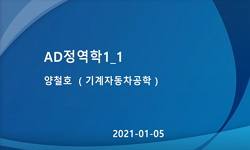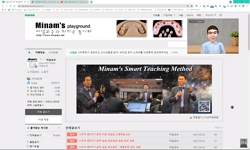본 연구의 목적은 자기주도학습 기반『플레잉스쿨(Playing School)』프로그램을 초등학생에게 적용했을 때 인지전략과 메타인지 전략에 어떠한 영향을 미치는지를 알아보는데 있다. 이를 위한 ...
http://chineseinput.net/에서 pinyin(병음)방식으로 중국어를 변환할 수 있습니다.
변환된 중국어를 복사하여 사용하시면 됩니다.
- 中文 을 입력하시려면 zhongwen을 입력하시고 space를누르시면됩니다.
- 北京 을 입력하시려면 beijing을 입력하시고 space를 누르시면 됩니다.

자기주도학습 기반『플레잉스쿨』프로그램 효과성 연구: 인지와 메타인지전략을 중심으로 = The Effects of the『Playing School』Program on Elementary School Students’ Cognitive and Metacognitive Strategy
한글로보기https://www.riss.kr/link?id=A105066247
- 저자
- 발행기관
- 학술지명
- 권호사항
-
발행연도
2017
-
작성언어
Korean
-
주제어
자기주도학습 ; 메타인지 ; 블렌디드러닝 ; SMMIS 모형 ; 플레잉스쿨 ; self-directed learning ; metacognition ; blended-learning ; SMMIS model ; Playing School
-
등재정보
KCI등재
-
자료형태
학술저널
- 발행기관 URL
-
수록면
943-971(29쪽)
-
KCI 피인용횟수
2
- DOI식별코드
- 제공처
- 소장기관
-
0
상세조회 -
0
다운로드
부가정보
국문 초록 (Abstract)
본 연구의 목적은 자기주도학습 기반『플레잉스쿨(Playing School)』프로그램을 초등학생에게 적용했을 때 인지전략과 메타인지 전략에 어떠한 영향을 미치는지를 알아보는데 있다. 이를 위한 구체적인 연구 문제는 다음과 같다. 첫째, 자기주도학습 기반 플레잉스쿨 프로그램은 초등학생의 인지전략 하위요인인 시연, 정교화, 조직화에 어떠한 영향을 미치는가? 둘째, 자기주도 학습 기반 플레잉스쿨 프로그램은 초등학생의 메타인지전략의 하위요인인 계획, 점검, 조절에 어떠한 영향을 미치는가? 셋째, 자기주도학습 플레잉스쿨 프로그램에 대한 초등학생들의 만족도는 어떠한가? 연구대상은 서울 소재 H초등학교 5ㆍ6학년 181명이었다. 프로그램 시작과 종료 시점에 자기주도학습능력 종합검사를 통해 학생들의 인지전략과 메타인지전략을 측정하고 대응표본 t-검정을 실시하였다. 아울러 프로그램 만족도를 조사하였다. 연구결과는 다음과 같다. 첫째, 학생들의 인지전략의 모든 하위요인인 시연, 정교화, 조직화 점수가 통계적으로 유의하게 증가하였다. 둘째, 메타인지전략의 모든 하위요인인 계획, 점검, 조절의 점수가 통계적으로 유의하게 증가하였다. 셋째, 학생들의 프로그램에 대한 만족도는 95%, 앞으로 이 프로그램을 계속 수강하고 싶다는 의견은 96%로 매우 긍정적이었다. 결론적으로, 플레잉스쿨 프로그램은 초등학생들의 인지전략과 메타인지전략의 향상에 도움이 되었으며, 본 연구에서 활용한 학습전략과 프로그램 운영 전략은 특정 교과시간만이 아닌 여러 교과학습 시간에 통합되어 활용될 수 있다면 그 효과는 더욱 커질 것으로 기대된다.
다국어 초록 (Multilingual Abstract)
The purpose of the study was to examine the effects of the 『Playing School』program applied for elementary school students’ cognitive and metacognitive strategy development in Korea. The research questions were as follows: 1) How do the Playing S...
The purpose of the study was to examine the effects of the 『Playing School』program applied for elementary school students’ cognitive and metacognitive strategy development in Korea. The research questions were as follows: 1) How do the Playing School program influence on elementary school students’ cognitive strategy including rehearsal, elaboration, and organization ability, 2) How do the Playing School program influence on elementary school students’ metacognitive strategy including planning, monitoring, and regulation ability, and 3) What are the satisfaction degree of the elementary students for the program? The participants of the study were 181 elementary school students in Seoul, Korea. They took self-directed learning ability measurement tests developed by CK Instructional Development Institute of Soongsil University as the pre- and post-test. The study collected participants’ cognitive and metacognitive strategy scores from the tests and used dependent sample t-test for the analysis. The participants’ satisfaction degree was analyzed by descriptive analysis. The research results were as follows. First, the increase of the participants’ cognitive strategies including rehearsal, elaboration, and organization ability were all statistically significant. Secondly, the increase of the participants’ metacognitive strategies including planning, monitoring, and regulation ability were all statistically significant. Finally, the participants’ satisfaction degree was very positive, showing the average from 4.21 to 4.67, and 95% of satisfaction with the program and 96% of intention of taking the follow-up program. In conclusion, The playing school program showed positive effects for development of elementary school students’ cognitive and metacognitive strategies. And we expect that the effects of the program will be more enhanced when the learning strategies and program operation strategies are utilized in other subject matter activities by the classroom teachers.
참고문헌 (Reference)
1 김형수, "학습자 특성 및 적용 영역별 인지학습전략의 효과" 교육과학연구소 37 (37): 43-74, 2006
2 송인섭, "학습자 중심의 21세기 패러다임: 방법과 전망" 한국교육심리학회 22 (22): 881-896, 2008
3 김정현, "학습기술 훈련 프로그램이 초등학교 아동의 자기 주도적 학습태도와 학업성취에 미치는 효과" 한국교원대학교 대학원 2004
4 김민정, "학습 방법으로서의 동료평가 : 평가자 및 피평가자의 역할이 학습자의 초인지, 학업성취, 학습동기에 미치는 영향" 한국교육공학회 21 (21): 1-28, 2005
5 정미경, "초등학생용 자기조절학습 검사의 표준화" 한국초등교육학회 16 (16): 253-272, 2003
6 안종인, "초등교사의 셀프리더십, 교사효능감, 학습조직문화, 자기주도학습능력, 학습촉진자 역량 간의 구조적 관계" 숭실대학교 대학원 2014
7 이재경, "초등 사회과에서 메타인지 전략을 활용한 읽기기능 지도가 학업성취도에 미치는 영향" 16 (16): 103-129, 2004
8 박태연, "청소년의 자기주도학습 코칭프로그램이 학업적 자기효능감에 미치는 효과" 8 (8): 91-107, 2015
9 김판수, "청소년을 위한 블렌디드러닝 기반 온라인 자기주도학습능력 종합진단검사 도구 개발" 한국디지털정책학회 15 (15): 1-11, 2017
10 교육과학기술부, "창의적 체험활동 교육과정" 교육부 2009
1 김형수, "학습자 특성 및 적용 영역별 인지학습전략의 효과" 교육과학연구소 37 (37): 43-74, 2006
2 송인섭, "학습자 중심의 21세기 패러다임: 방법과 전망" 한국교육심리학회 22 (22): 881-896, 2008
3 김정현, "학습기술 훈련 프로그램이 초등학교 아동의 자기 주도적 학습태도와 학업성취에 미치는 효과" 한국교원대학교 대학원 2004
4 김민정, "학습 방법으로서의 동료평가 : 평가자 및 피평가자의 역할이 학습자의 초인지, 학업성취, 학습동기에 미치는 영향" 한국교육공학회 21 (21): 1-28, 2005
5 정미경, "초등학생용 자기조절학습 검사의 표준화" 한국초등교육학회 16 (16): 253-272, 2003
6 안종인, "초등교사의 셀프리더십, 교사효능감, 학습조직문화, 자기주도학습능력, 학습촉진자 역량 간의 구조적 관계" 숭실대학교 대학원 2014
7 이재경, "초등 사회과에서 메타인지 전략을 활용한 읽기기능 지도가 학업성취도에 미치는 영향" 16 (16): 103-129, 2004
8 박태연, "청소년의 자기주도학습 코칭프로그램이 학업적 자기효능감에 미치는 효과" 8 (8): 91-107, 2015
9 김판수, "청소년을 위한 블렌디드러닝 기반 온라인 자기주도학습능력 종합진단검사 도구 개발" 한국디지털정책학회 15 (15): 1-11, 2017
10 교육과학기술부, "창의적 체험활동 교육과정" 교육부 2009
11 이경희, "중등교사의 자기주도 학습능력, 교사효능감, 학습지속성, 직무만족도 간의 구조적 관계 분석" 숭실대학교 대학원 2013
12 김시온, "중, 고등학생의 메타인지, 자기효능감, 구성주의적 과학 학습 환경에 대한 인식 분석" 이화여자대학교 교육대학원 2011
13 서은정, "자기주도학습 프로그램이 초등학생의 자기주도학습과 학습몰입에 미치는 효과" 서울교육대학교 교육대학원 2013
14 최성우, "자기주도학습 능력 진단검사 도구의 구성요인 탐색 - 동기, 인지, 행동조절을 중심으로 -" 한국글로벌문화학회 8 (8): 43-65, 2017
15 최성우, "자기주도학습 기반 창의성·인성 함양과 진로탐색 체험의 장,『플레잉스쿨』시스템 모형 개발" 한국교육정보미디어학회 21 (21): 543-571, 2015
16 김판수, "자기주도학습 & 코칭 A, B, C" 즐거운 학교 2010
17 양명희, "자기조절학습의 모형탐색과 타당화 연구" 서울대학교 대학원 2000
18 장영란, "자기성찰 학습일지 작성 및 피드백 유형이 자유학기제 중학교 학습자의 영어 어휘, 문법 및 자기주도적 학습에 미치는 영향" 이화여자대학교 2015
19 김원자, "인지전략 자기주도학습과 메타인지전략 자기주도학습 프로그램이 초등학생의 자기주도 학습 능력 향상에 미치는 영향" 한국교원대학교 교육대학원 2004
20 민현숙, "유아의 자기 주도적 놀이학습 측정도구 개발 및 프로그램효과에 관한 연구" 충남대학교 대학원 2008
21 이승희, "웹기반 학습환경에서 협력적 성찰이 문제해결 수행 및 과정에 미치는 영향" 한국교육공학회 19 (19): 131-159, 2003
22 이희정, "웹기반 프로젝트학습에서 메타인지지원전략이 아동의 학업성취도와 자기주도적 학습에 미치는 영향" 관동대학교 교육대학원 2007
23 Pink, D. H, "새로운 미래가 온다. 미래 인재의 6가지 조건" 한국경제신문사 2012
24 노희정, "사회과교육에서의 메타인지 전략을 활용한 자기주도적 학습프로그램의 효과 : 초등 사회과를 중심으로" 서울교육대학교 교육대학원 2001
25 김성길, "배움의 의미" 학지사 2009
26 김동일, "메타인지전략의 효과에 관한 메타분석: 집단설계연구와 단일사례연구의 비교" 교육연구소 17 (17): 21-48, 2016
27 신종호, "메타인지의 영역 일반성과 영역 특수성 비교" 한국교육심리학회 21 (21): 89-104, 2007
28 김판수, "메타인지와 말하는 공부 : 4차 산업혁명 시대의 힘(power)" 패러다임북 2017
29 성은모, "대학교육에서 성적 우수 학습자의 자기주도학습역량 요인 탐색" 한국교육공학회 32 (32): 427-452, 2016
30 김판수, "공부의 절대시기: 자기주도학습법" 교육과학사 2007
31 이재신, "고등학생의 메타인지와 학습몰입과의 관계 : 자기주도적 학습능력의 매개효과" 한국교원교육학회 26 (26): 277-295, 2009
32 박안나, "간호사의 비판적 사고성향, 학습관련 자기주도성 및 간호업무수행능력에 관한 연구" 간호행정학회 22 (22): 1-10, 2016
33 Martinez, M. E., "What is metacognition?" 87 (87): 696-, 2006
34 Corno, L, "The role of cognitive engagement in classroom learning and motivation" 18 : 88-108, 1983
35 Knowles, M. S., "The modern practice of adult education: From pedagogy to andragogy" Cambridge Books 1980
36 Corno, L., "The metacognitive control components of self-regulated learning" 11 : 333-346, 1986
37 Lee, S., "The effects of individual and collaborative reflection on cognitive structures and intersubjectivity" The Florida State University 1999
38 Baird, Fensham, "The Importance of Reflection in Improving Science Teaching and Learning" 28 (28): 163-182, 1991
39 Peterson, P. L., "Students’ aptitudes and their reports of cognitive process during direct instruction" 74 : 535-547, 1982
40 Zimmerman, B. J., "Student Differences in self-regulated learning: relating grade, sex, and giftedness to self-efficacy and strategy use" 82 : 51-59, 1990
41 Knowles, M. S., "Self-directed learning: A guide for learners and teachers" Association Press 1975
42 Boekaerts, "Self-Regulated Learning: Bridging the Gap Between Metacognitive and Metamotivation Theories" 30 (30): 195-200, 1995
43 Ridley, D. S., "Self- Regulated Learning: The Interactive Influence of Metacognitive Awareness and Goal- Setting" 60 (60): 293-306, 1992
44 Morgan, M., "Self monitoring of attained subgoals on private study" 77 : 623-630, 1985
45 조경진, "SNS를 활용한 성찰활동에서 동료학습자의 피드백 제공이 학습자의 학업적 자기효능감, 메타인지, 학업성취도에 미치는 영향" 한국교육공학회 31 (31): 401-430, 2015
46 Mittan, R., "Richness in wiring: Empowering ESL students" Longman 1989
47 Schraw, G., "Promoting self-regulation in science education: meta-cognition as part of a broader perspective on learning" 36 (36): 111-139, 2006
48 Pocay, P, "Predicting achievement early and late in the semester: the role of motivation and use of learning strategies" 82 : 41-50, 1990
49 Long, H. B., "Philosophical, psychological and practical justifications for studying self-directions in learning, In Self-Directed Learning: Application and Research" Oklahoma Research Center for Continuing Professional and Higher Education, University of Oklahoma 9-24, 1992
50 Blom, D., "Peer assessment of tertiary music performance: Opportunities for understanding performance assessment and performing through experience and self-reflection" 21 (21): 111-125, 2004
51 서혜경, "PBL기반 자기주도학습 프로그램 개발 및 효과성 검증" 서울교육대학교 교육대학원 2011
52 Pintrich, P. R., "Motivational and self-regulated learning components of classroom academic performance" 82 : 33-40, 1990
53 Flavell, J. H., "Metacognition and cognitive monitoring: A new area of cognitive- developmental inquiry" 34 (34): 906-911, 1979
54 Hooey, C. A., "Journal writing and the development of spatial thinking skills" 10 (10): 257-261, 2005
55 Weinstein, C. E., "Handbook of research on teaching" Macmillan 1986
56 Topping, K., "Formative peer assessment of academic writing between postgraduate students" 25 (25): 149-169, 2000
57 Blakey, E, "Developing Metacognition" ERIC Digest
58 Zimmerman, B. J., "Construct validation of a strategy model of student self-regulated learning" 80 : 284-290, 1988
59 Jacobs, J. E, "Children’s metacognition about reading: Issues in definition, measurement, and instruction" 22 (22): 255-278, 1987
60 Driscoll, M., "Blended learning" 3 (3): 54-56, 2002
61 Zimmerman, B. J., "Becoming a self-regulated learner: Which are the key subprocesses?" 11 : 307-313, 1986
62 Singh, H, "A white paper: Achieving success with blended learning"
동일학술지(권/호) 다른 논문
-
학습 설계를 지원하는 이러닝 플랫폼 프로토타입 탐색 연구
- 한국교육공학회
- 임철일 ( Cheolil Lim )
- 2017
- KCI등재
-
청소년 기업가정신 함양을 위한 메이커교육 프로그램 모형 개발
- 한국교육공학회
- 윤성혜 ( Seonghye Yoon )
- 2017
- KCI등재
-
- 한국교육공학회
- 여상한 ( Sang Han Yeo )
- 2017
- KCI등재
-
- 한국교육공학회
- 유미나 ( Mina Yoo )
- 2017
- KCI등재
분석정보
인용정보 인용지수 설명보기
학술지 이력
| 연월일 | 이력구분 | 이력상세 | 등재구분 |
|---|---|---|---|
| 2027 | 평가예정 | 재인증평가 신청대상 (재인증) | |
| 2021-01-01 | 평가 | 등재학술지 유지 (재인증) |  |
| 2018-01-01 | 평가 | 등재학술지 유지 (등재유지) |  |
| 2015-01-01 | 평가 | 등재학술지 유지 (등재유지) |  |
| 2011-01-01 | 평가 | 등재학술지 유지 (등재유지) |  |
| 2009-01-01 | 평가 | 등재학술지 유지 (등재유지) |  |
| 2007-01-01 | 평가 | 등재학술지 유지 (등재유지) |  |
| 2004-01-01 | 평가 | 등재학술지 선정 (등재후보2차) |  |
| 2003-01-01 | 평가 | 등재후보 1차 PASS (등재후보1차) |  |
| 2002-01-01 | 평가 | 등재후보 1차 FAIL (등재후보1차) |  |
| 1999-07-01 | 평가 | 등재후보학술지 선정 (신규평가) |  |
학술지 인용정보
| 기준연도 | WOS-KCI 통합IF(2년) | KCIF(2년) | KCIF(3년) |
|---|---|---|---|
| 2016 | 3.7 | 3.7 | 3.26 |
| KCIF(4년) | KCIF(5년) | 중심성지수(3년) | 즉시성지수 |
| 2.89 | 2.68 | 3.751 | 0.75 |





 KCI
KCI KISS
KISS







